Former Burundi Heads of State no longer have seats in the Senate. The first Deputy-President of the National Assembly was also nearly dismissed from his position in the National Assembly. Some people denounce a kind of exclusion.
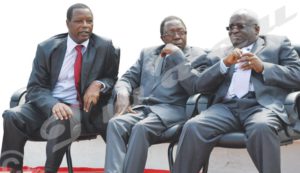
The three heads of state excluded from the Senate.
“As you noticed during this session, the seats of former presidents no longer exist,” said the second vice president of the senate to journalists on Monday, June 18. Their chairs were removed before the adoption of the new rules of procedure of the Senate which exclude them.
For Anicet Niyongabo, it is a question of adjusting to the new Constitution of June 7, which no longer recognizes the former Heads of State as senators for life, as stated in the Arusha Agreement and the 2005 Constitution. With the new Constitution, Pierre Buyoya, Sylvestre Ntibantunganya and Domitien Ndayizeye no longer have the right to sit in the Senate.
Since then, controversies arouses over the removal of those who have ruled the country in the past from the Senate. “Shouldn’t they wait for the 2020 elections?” ask some Burundian politicians.
After the Senate, the National Assembly
Eyes quickly turned on the National Assembly. It is known that the new Constitution excludes any coalition of independents. People wonder what would be the intentions of the National Assembly.
Unsurprisingly, the National Assembly also planned to adapt its rules of procedure to the new Constitution on Tuesday, June 19. Amizero y’Abarundi opposition coalition was on its guard. It knew it would fight hard to keep its place in the National Assembly.
The commission responsible for adapting the rules of procedure to the new Constitution played its role. Article 19 of the said bylaw provides in its paragraph 1 that “the Office of the National Assembly comprises a president and two vice-presidents. It must be multiparty.”
The Defense and Security Commission, led by one of the leaders of CNDD-FDD, sought to change it. According to Zénon Ndaruvukanye, “the two vice-presidents can be replaced by vice-presidents and they judged it good to delete the last sentence: It must be multiparty”.
If the clause that imposes the multiparty system within the assembly’s bureau were removed from the rules of procedure, it would be possible to oust Agathon Rwasa from his position as the first vice-president of the National Assembly which would therefore comprise 3 bosses, all from the ruling party.
MPs from Amizero y’Abarundi coalition who were present in the National Assembly did not understand it that way. For them, this provision should not be altered or removed. The chairman of the parliamentary group of this coalition, Pierre Celestin Ndikumana, spoke about an exclusion and threatened to leave the chamber.
After hours of heated debate, the president of the National Assembly, Pascal Nyabenda, decided that Article 19 should not be changed or removed if it conforms to the new Constitution promulgated in June 2018.
It was a sigh of relief for Amizero y’Abarundi coalition.
Reactions
Sylvestre Ntibantunganya: “Respect for the law”
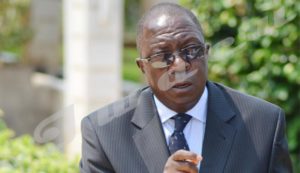
For this former President of Burundi, democracy requires that people learn to respect the law. “We must not make the law say what we want but rather do what it requires us to do. Sylvestre Ntibantunganya says the new Constitution is clear. Even the current President has said that the institutions set up in 2015 will remain in place until the next elections.
Agathon Rwasa: “Have we prevented the CNDD-FDD policies from being implemented?”
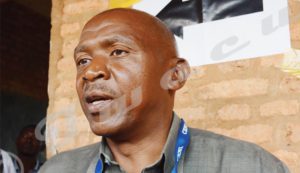 The first vice-president of the National Assembly wonders if the existence of former Heads of State in the Senate and the Amizero y’Abarundi coalition in the National Assembly prevented CNDD-FDD policies from being implemented. “I do not think so,” he says. For him, it is immature wanting to exclude others
The first vice-president of the National Assembly wonders if the existence of former Heads of State in the Senate and the Amizero y’Abarundi coalition in the National Assembly prevented CNDD-FDD policies from being implemented. “I do not think so,” he says. For him, it is immature wanting to exclude others
Article 185 of the Constitution stipulates that the Senate consists of two delegates from each province, from different ethnic communities, three people from Twa ethnic group and a minimum of 30% of women.
There is no mention of former Heads of State.What about transitional provisions?
Article 288 stipulates that, pending the establishment of the institutions resulting from the elections in accordance with the new Constitution, the institutions in place shall remain in office until the effective establishment of new elected institutions.What about the final provisions?
Article 290: To the extent that they are not contrary to the new Constitution, the legislative and regulatory provisions prior to its coming into force shall remain in force until amended or repealed.
Article 292: This Constitution adopted through the referendum of May 17, 2018 shall come into force on the day of its promulgation.
Analysis by Agnès Ndirubusa
It would be time for appeasement
Two weeks after the speech of President Nkurunziza hailed as a speech of relaxation, the legislative power gives illusions. Removing the former Heads of State from the Senate and seeking to oust Agathon Rwasa from the office of the National Assembly don’t promote the very relaxation. The ruling party is very watchful.
Analysts are unanimous: The legislature applies a policy of exclusion while it was time for Burundians to move towards the peaceful elections in 2020.
What happened in the National Assembly also reflects ambivalence within CNDD-FDD party. There is a group of diehards who firmly believe that the country is only well governed by the members of party and that it would be better to manage the country without a word or advice from former Heads of State or criticisms from the leaders of Amizero y’Abarundi opposition coalition.
There is another, more progressive side that banks on a CNDD-FDD party which does not exclude others and which thinks that isolating oneself is not a good solution. This group narrowly prevented a crisis in the assembly.
The president’s speech announcing that he will not stand as president in 2020 elections is certainly an opening, but the events in the National Assembly and the Senate show that the progressive wind that motivated him must also blow through the entire system.
Written by Agnès Ndirubusa and translated by Pierre Emmanuel

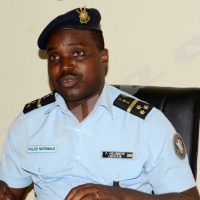
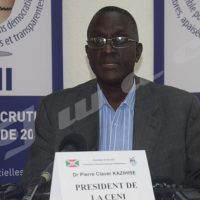
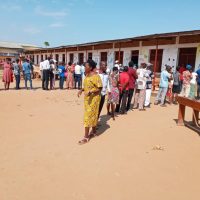
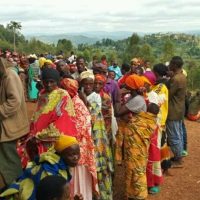
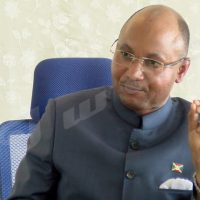













 IWACU Open Data
IWACU Open Data

